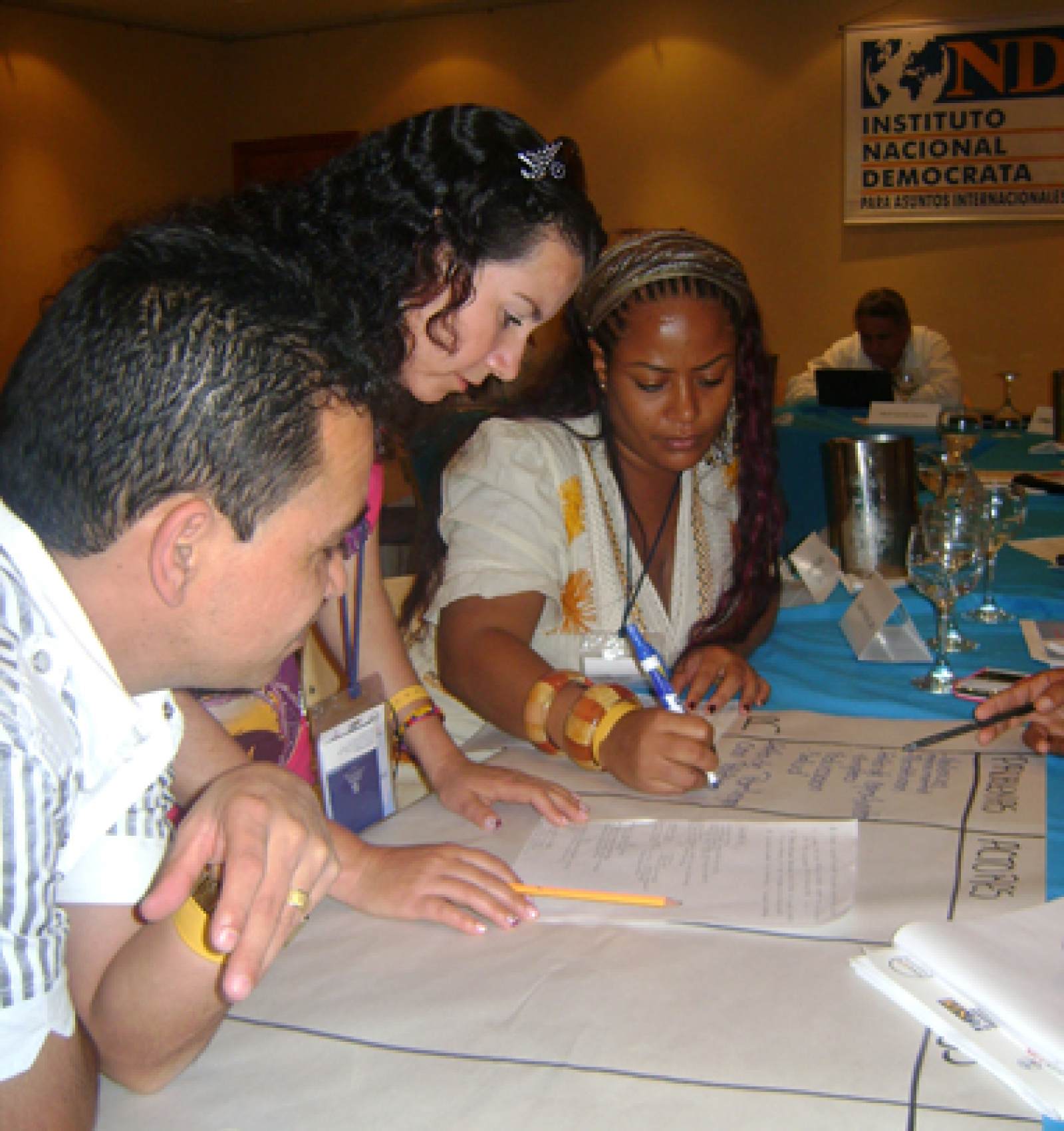
SHARE
In Colombia, as in many countries in Latin America, municipal councilors generally receive little training in the skills they need to represent their constituents effectively. This is especially true for small and poor municipalities in post-conflict regions or those with large Afro-Colombian or indigenous populations.
“The tools of the trade must be learned on the job,” said Yamil Quinto of Istmina, a municipal council member from the city of Istmina in the primarily Afro-Colombian department of Chocó. (Colombian departments are the equivalent of states.)
At a recent seminar in Santa Marta in the Magdalena department, Quinto and other council members focused on how to identify citizens’ needs, develop policies to address those needs, negotiate, and engage citizens and the media. The seminar also covered the council’s oversight role and the benefits of working within political parties and caucuses.
The council members worked through those issues with Colombian and international experts, including academics, journalists, representatives of civic groups and former local elected officials. Cosponsored by NDI, USAID’S CIMIENTOS local-governance program and the National Federation of Municipal Councils (Federación Nacional de Concejos, FENACON), the seminar built on work NDI has done throughout the region to help local elected officials deliver specific and substantive results to the citizens who elected them. In August, NDI convened Argentine federal and state legislators, governors and mayors in association with the Political Action Network (Red de Acción Política, RAP) for a four-day seminar on similar issues.
The participants in Santa Marta, from 20 municipalities in 10 departments, represented nine political parties from across the political spectrum. Half were Afro-Colombians and one third of the participants were women. They were chosen from among Colombia’s 12,000 council members through nominations by their parties and then a selection process that sought to balance political viewpoints and the participation of traditionally underrepresented Afro-descendants and women.
Participants said they would share the tools with colleagues in their councils and parties, and use them to develop policies to benefit their communities. In some cases, the seminar helped participants overcome their disillusionment with politics. For example, Leydi Palacios from the city of Buenaventura, in the Valle del Cauca department, said that skills acquired at the seminar convinced her that it would be possible to work to improve her municipality’s development plan, which had previously been a major source of frustration and a potential reason to exit politics.
“These types of events help us to become better people, better council members, better community representatives, better public servants and better advocates for the rights of our communities,” said Antonio Acosta of San Onofre, in the department of Sucre.
Pictured Above:Municipal councilors work in a group during the seminar in Santa Marta in the Magdalena department.
Published January 26, 2011


